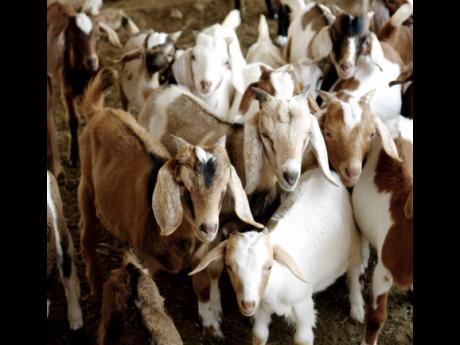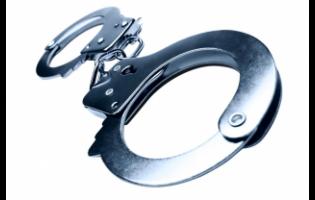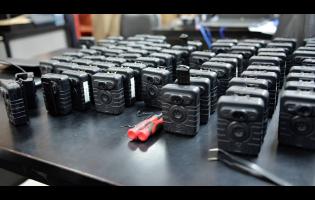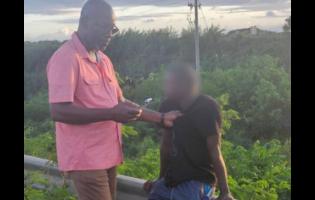Gov’t urged to do more to stop goat thieves
With the many recent attacks on goat farmers, the president of the Goat Farmers Association, Trevor Bernard, has called on the relevant authorities to do more to check and trace the origin of goat meat being sold on the island.
"What we need is for them to go into the supermarkets, restaurants and other sellers to do some spot checks to find out who are the suppliers, and find out where they get this meat from, and ask them to show the evidence of where they get the meat from, then do traceability right back to the farm," said Bernard.
Goat farmers have been targeted by criminals, who have, in some instances, murdered the farmers while in the process of stealing their livestock. Last week, several disgruntled goat herders in Crowder, Grange Hill, Westmoreland, called on the police to provide greater protection following the gruesome murder of a farmer in their community.
The latest victim has been identified as 70-year-old Aron Scarlett. He is the third goat herder to be robbed of his livestock and murdered in that community over the past three months. Two other men, Henry 'Maas Hen' Jones, 65, and Brian 'Fowlie' Chambers, 44, both of Crowder district, were killed in December.
Praedial larceny, together with a lack of certification and traceability at slaughtering, has been inflicting a crippling blow on the small ruminant sector, while putting the health of consumers at risks.
Bernard, contacted by THE STAR yesterday, said that one of the major contributing factors to goat theft is that persons are buying meat from the thieves, both knowingly and unknowingly.
"Some of the restaurants and the retailers that are buying a mass of the goat's meat are not checking where it is coming from and doing their due diligence on things that are in place to check the source of the meat," Bernard said.
He said that thieves who make off with between 10 and 20 goats can make about a million dollars, which for them is easy money. Bernard said that the issue is not only wide-scale, but now it is creating fear and panic among farmers, thus stifling the growth of the industry.
"I don't even think most of it is reported by farmers. Everywhere yuh guh, almost every farmer all over the island has had some form of theft," Bernard said.
"So now, a lot of farmers don't want to let out their goats. They have to be tying them up and keeping the numbers down. It really affects the small farmers in a big, big way, because they can't grow and get to the next level. And then the larger farmers, even with high-tech cameras, they are experiencing theft," Bernard said.







































